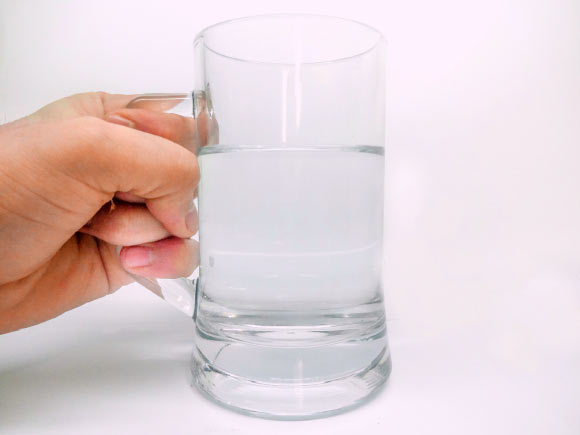A study led by Pennsylvania State University’s Dr. Asher Rosinger suggests that those who don’t feel well after a night of poor sleep may want to consider dehydration — not simply poor sleep — as a cause, and drink more water.

Short sleep duration was associated with higher odds of inadequate hydration. Image credit: Photo-Shot.
“Short and long sleep duration are linked to reduced kidney function, but little research has examined how sleep is associated with hydration status,” said Dr. Rosinger and his colleagues from Pennsylvania State University, Kailuan Hospital in Tangshan, China, and Harvard Medical School.
“Our aim was to assess the relationship between sleep duration and urinary hydration biomarkers among adults in a cross-cultural context.”
In the study, the researchers looked at how sleep affected hydration status and risk of dehydration in U.S. and Chinese adults.
Three samples of adults aged 20 years were analyzed: 2007-2008 National Health and Nutrition Examination Survey, or NHANES (4,680 participants), 2009-2012 NHANES (9,559 participants), and 2012 cross-sectional wave of the Chinese Kailuan Study (11,903 participants), excluding pregnant women and adults with failing kidneys.
In both populations, adults who reported sleeping six hours had significantly more concentrated urine and 16-59% higher odds of being inadequately hydrated compared to adults who slept eight hours on a regular basis at night.
The cause was linked to the way the body’s hormonal system regulates hydration.
A hormone called vasopressin is released to help regulate the body’s hydration status. It is released throughout the day, as well as during nighttime sleeping hours, which is what the researchers focused on for this study.
“Vasopressin is released both more quickly and later on in the sleep cycle. So, if you’re waking up earlier, you might miss that window in which more of the hormone is released, causing a disruption in the body’s hydration,” Dr. Rosinger said.
Dehydration negatively affects many of the body’s systems and functions, including cognition, mood, physical performance and others.
Long term or chronic dehydration can lead to more serious problems, such as higher risk of urinary tract infections and kidney stones.
“If you are only getting six hours of sleep a night, it can affect your hydration status,” Dr. Rosinger said.
“Our study suggests that if you’re not getting enough sleep, and you feel bad or tired the next day, drink extra water.”
The findings appear in the journal Sleep.
_____
Asher Y. Rosinger et al. Short sleep duration is associated with inadequate hydration: Cross-cultural evidence from US and Chinese adults. Sleep, published online November 5, 2018; doi: 10.1093/sleep/zsy210







